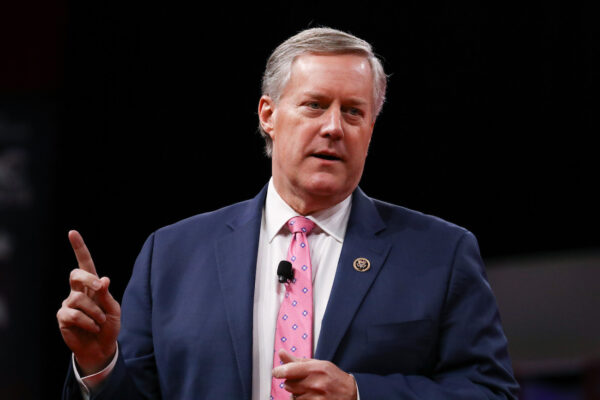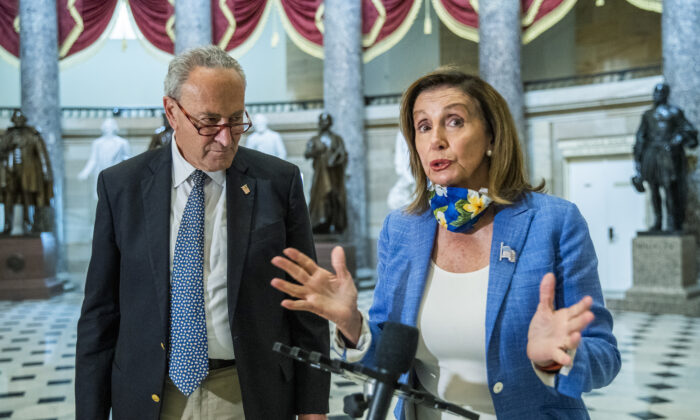BY (EPOCH TIMES)
Speaker Nancy Pelosi (D-Calif.) on Thursday suggested Democrats will not accept anything that costs less than about $2 trillion on a COVID-19 stimulus deal.
“When we go into a negotiation it’s about the allocation of the resources,” she told reporters in Washington. “But it’s hard to see how we can go any lower when you only have greater needs.”
House Democrats passed the $3.4 trillion HEROES Act in May, but Republicans said they have no desire to take it up, as it would not garner bipartisan support. That deal and the CARES Act, which was passed with bipartisan support in March, are intended to offset economic losses incurred during the CCP (Chinese Communist Party) virus pandemic.
“We asked them to go up $1 trillion, instead they went down, not recognizing the need,” Pelosi said. “The needs have only grown since May 15. … So we’re going to have to reallocate some of that money so that we can meet the needs as we see them,” she added. “The fact is, we shouldn’t be going down because we have these needs, so that we can open up the economy.”
President Donald Trump on Wednesday called on Republicans in Congress to authorize more emergency funding, including stimulus payments.
White House Chief of Staff Mark Meadows told Fox News on Thursday that members of the House should stick around and attempt to negotiate on a deal.
He called on constituents “to call on their House member to make sure that they stay here [and] that we negotiate,” adding, “At least let’s use this $1.5 trillion new recommendation as a foundation for new negotiations.”
At the same time, a bipartisan group of Democrats and Republicans unveiled a smaller, $1.5 trillion deal that includes stimulus payments, some unemployment benefits, and $500 billion for state and city governments. The HEROES Act proposed nearly $1 trillion in funding to local municipalities.

“The fact is, we all hear back home Americans simply can’t afford inaction,” said Rep. Josh Gottheimer (D-N.J.), who is co-chair of the bipartisan group called the Problem Solvers Caucus, in a statement. “The American people need the negotiators to get back to the table.”
Co-chair Rep. Tom Reed (D-N.Y.) added, “Americans deserve a functioning Congress that can rise to the challenge and deliver the relief they need. … Our framework reflects months of bipartisan consensus-building on the actions the federal government can take to help working families and local communities across the country as they navigate the impacts of COVID-19.”
However, top Democrats led by House Majority Leader Steny Hoyer (D-Md.) said they will not take up their deal.
“I think the Problem Solvers are lower than would be a responsible deal,” Hoyer told reporters after it was unveiled. “There are a lot of objectives that I think the Republicans have simply ignored. The Problem Solvers addressed some of them and I think that’s useful and we need to move forward with that in mind.”
Other Democratic leaders issued statements to media outlets, saying they would not support the deal.
Some moderate Democrats, including Rep. Max Rose (D-N.Y.), attempted to apply more pressure on Pelosi.
“The pressure is loud and forthright and it is bipartisan in nature,” Rose told Fox News on Sept. 16, calling on party leaders to agree to a “real” bill. “Because that pressure is reflective of where the American people are. They are sick and tired of politics.”
Pelosi responded to the criticism from members of her own party.
“You hear different things, but the fact is we want to have an agreement, and we will stay until we have an agreement,” she said.




